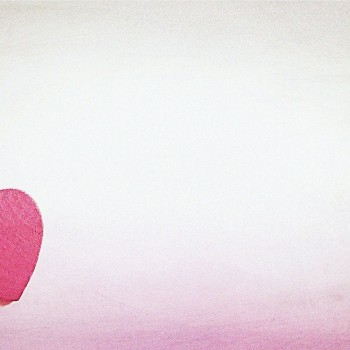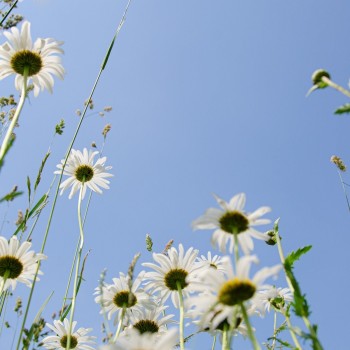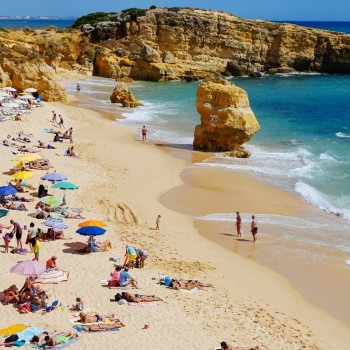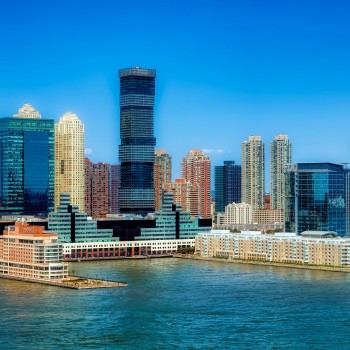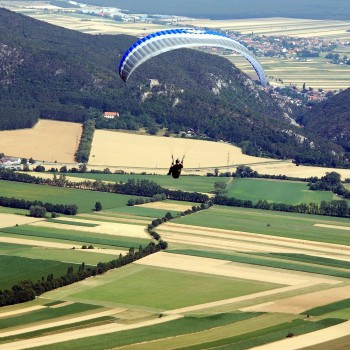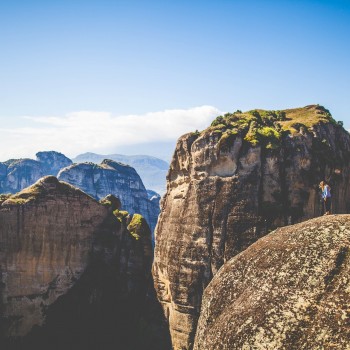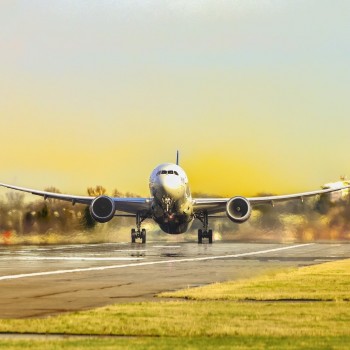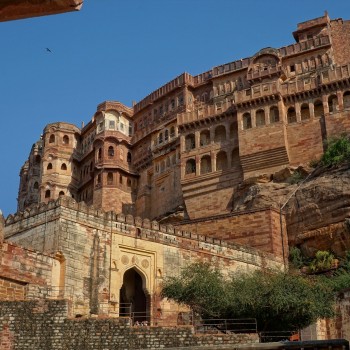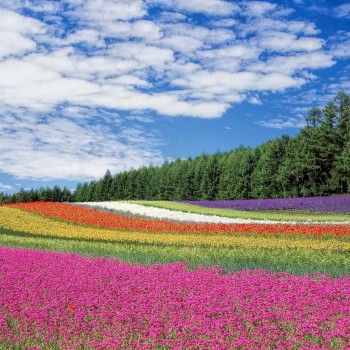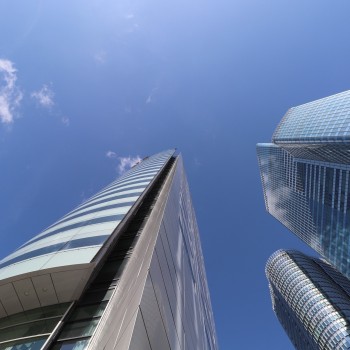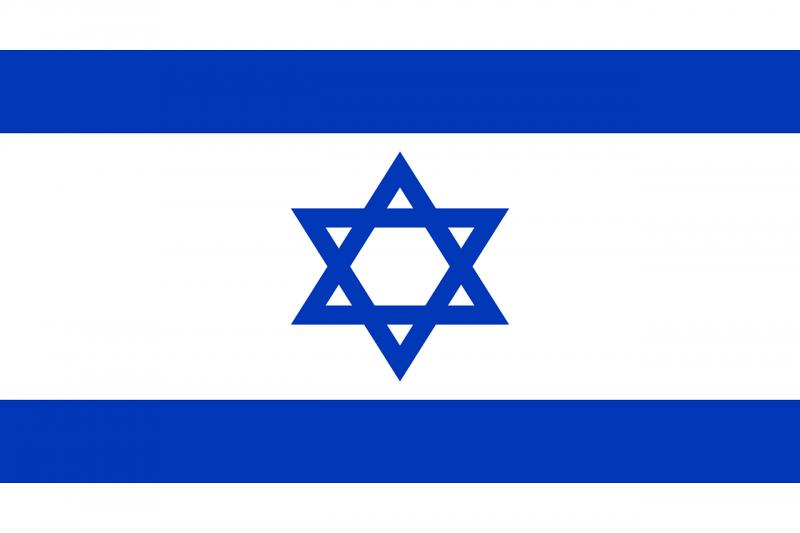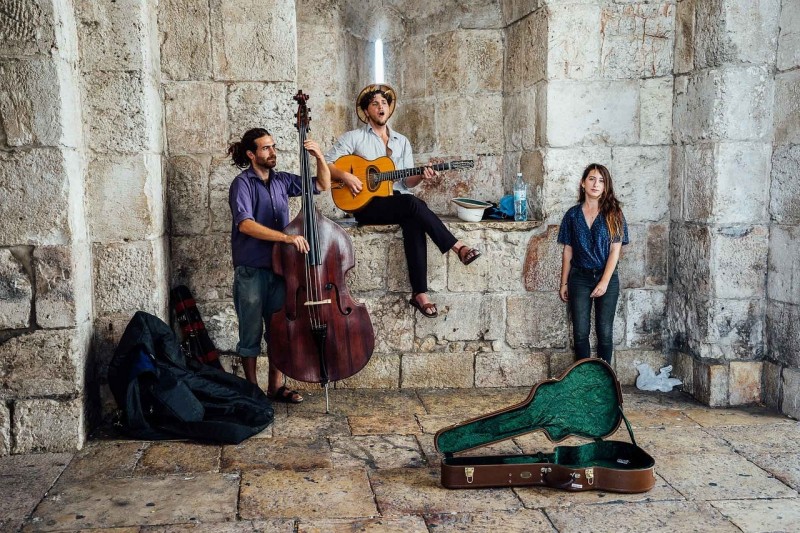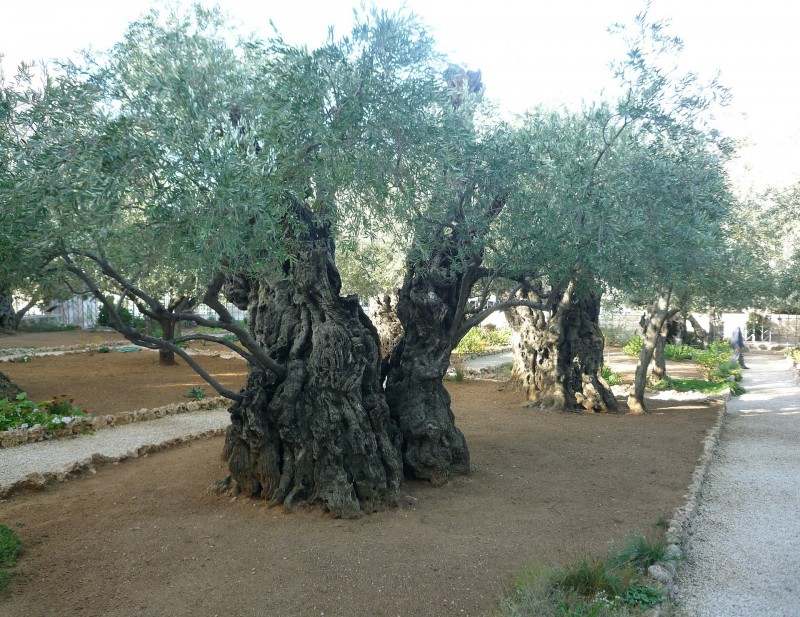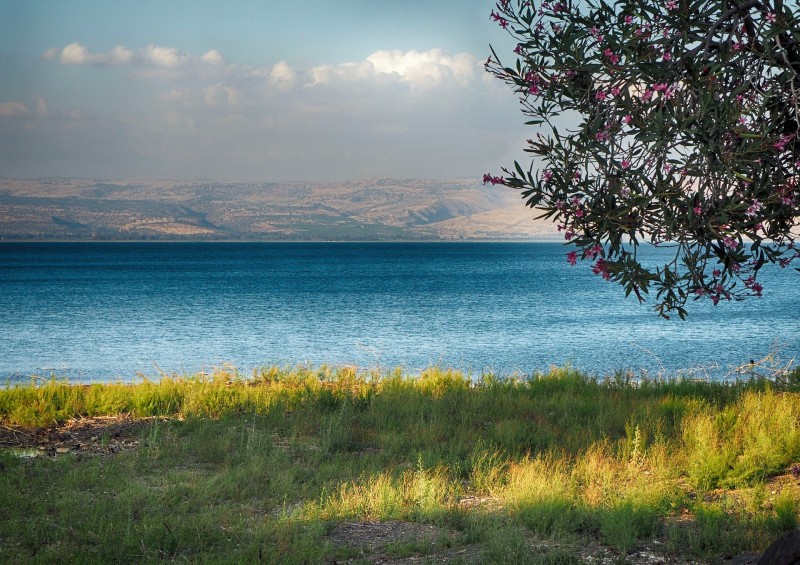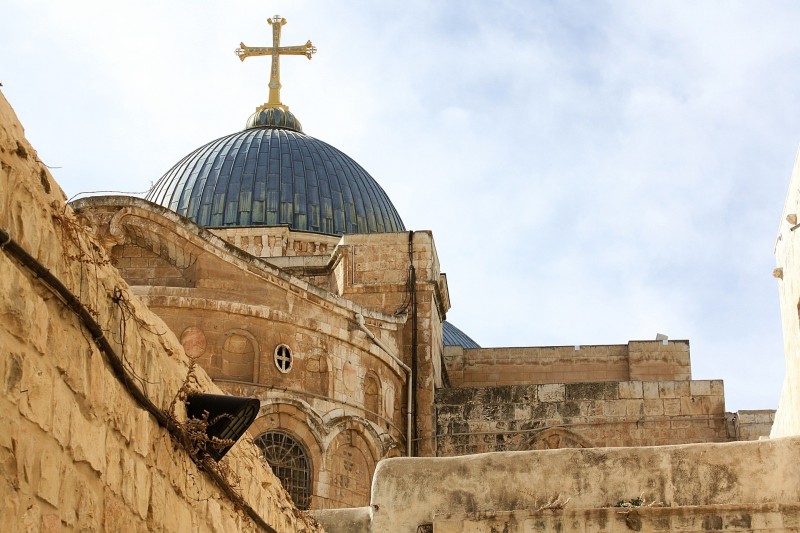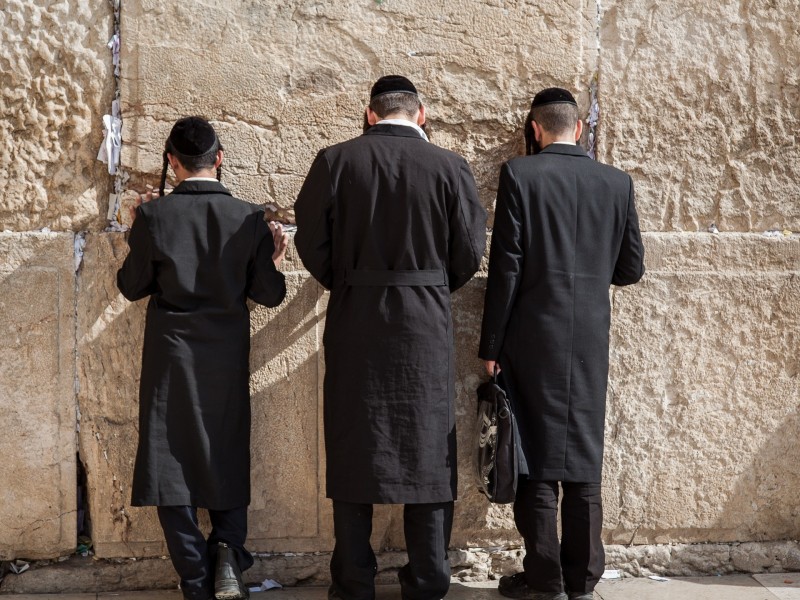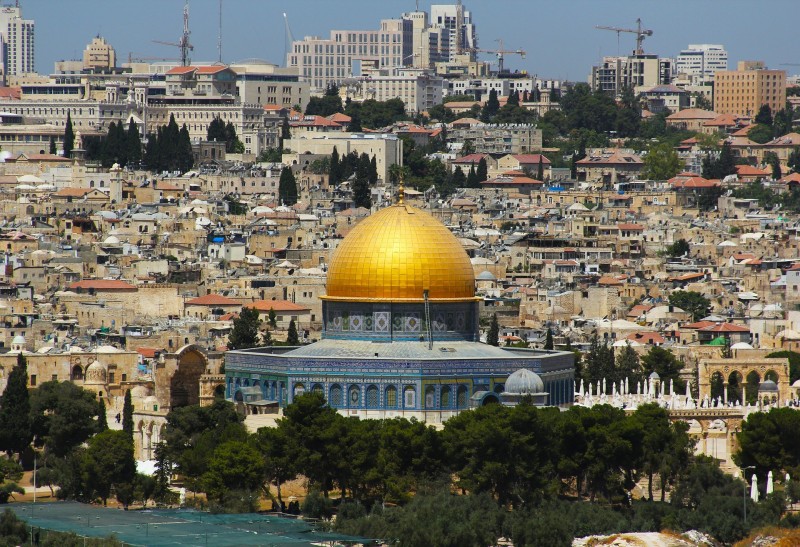Israel
Israel
Capital city description
Jerusalem, the Israeli capital, is easily one of the captivating places on Earth because of this history. The beauty of the ancient walled city is wondrous, but its spiritual value to three great faiths, Islam, Judaism, and Christianity, is limitless. On just a short walk, you can see Christians kneeling in prayer at the Church of the Holy Sepulchre, Muslims bowing in front of the Al-Aqsa Mosque, and Jews congregating near the Western Wall.
Climate
- Spring: March to May
- Summer: June to August
- Autumn: September to November
- Winter: December to February
The climate in Israel is described by hot and sunny summers and a long period of sunshine, with cloudless skies from May to September. The rains (where they occur) are concentrated from November to March.
Languages spoken
Hebrew is the official language of Israel, but the Arab minority, which accounts for about one-fifth of the population, also speaks Arabic. Additionally, many Israelis know English, and over a million speak Russian due to immigration from the Soviet Union.
Fun/Fascinating Facts
- Israel legalized same-sex sexual activities in 1988 and became the first Asian country to acknowledge any form of same-sex union.
- In 2012, Israel became the first country to actively promote the image of a healthy body. A new national law banned underweight models from participating in adverts and catwalks.
- Israel is highly advanced in the science and technology sector. The country ranks 13th in the world in terms of the number of scientific publications per capita.
- Some significant inventions took place in the country, which is pen drive, antivirus, computer firewall, the first cell phone, voice mail, world’s most the miniature video camera, RSA public key authentication, the first Intel processor 8088, laser keyboard, Waze navigation app, camera pill, and world’s most miniature DNA computing machine system.
- The southern Israeli city of Be’er Sheva holds the world record of the most number of chess grandmasters per capita, with 1 in every 20,000.
Unique Customs/Traditions
- Most Jewish Israelis serve in the army, and being called for reserve duty is a part of life for most male Israelis.
- Israelis are very family-oriented. As a patriarchal society, fathers are always the head of the household. A family usually includes the husband and wife, sons and their wives, single sons and daughters, and their service assistants and the assistants’ families.
- Israeli cuisine usually follows kosher protocols due to the Jewish culture and religion. Pork, shellfish, eggs, and milk are forbidden. Preparing or cooking meats, dairy products, and eggs in the same pot or container is also prohibited.
- No public transportation on Saturday, and that you must remember to shop on Friday so that you can rest and enjoy the silence of Saturday or Shabbat.
- Israelis clap when their plane safely lands, particularly on El Al flights and especially when they land in Israel.
Popular universities
| Name | Description | |
|---|---|---|
| Hebrew University | The Hebrew University has three campuses across Jerusalem, and a fourth in the city of Rehovot, with around 23,500 students in total. It was founded in 1918, making it the second-oldest of universities in Israel. Most full degree programs are taught in Hebrew, but there is also a selection of English-taught courses available, mainly at the master’s level. The university’s Rothberg International School offers shorter study abroad programs, and the university is home to the world’s most extensive Jewish studies library. | |
| Tel Aviv University | Founded in 1956, Tel Aviv University, Israel’s largest university. It is one of the most prestigious Israeli universities; it comes first in research output. It is ranked among the world’s best for 21 subjects, including the worldwide top 100 for archaeology and the top 150 for philosophy, computer science, psychology, mathematics, and economics. | |
| Technion - Israel Institute of Technology | Established in 1924, the Technion - Israel Institute of Technology is the oldest university in Israel. Technion - Israel Institute of Technology offers degrees in science and engineering and related fields such as architecture, medicine, industrial management, and education in an intellectually invigorating environment. Great emphasis is also placed on its humanities and social science programs, incorporating them take on ever-increasing importance in today's multi-faceted workplace. The Technion actively publishes its discoveries in journals and famous manuscripts and aims to spark scientific and technological interest among youth through popular lectures and programs. | |
| The Ben-Gurion University of the Negev | The Ben-Gurion University of the Negev, with its main campus in Beer Sheva, Israel, was founded in 1969 and named after David Ben-Gurion, Israel’s first Prime Minister. This institution also has branch campuses in the following locations: Sede Boqer, Eilat. It was officially recognized by the Ministry of Education of Israel. Ben-Gurion University of the Negev (BGU) offers courses and programs leading to officially recognized higher education degrees such as bachelor's degrees, master's degrees, doctorate degrees in several areas of study. | |
| Weizmann Institute of Science is a non-profit public higher education institution located in the urban setting of the small city of Rehovot, Central District. Established in 1934 and officially recognized by the Ministry of Education of Israel. Weizmann Institute of Science (WIS) offers courses and programs leading to officially recognized higher education degrees such as bachelor's degrees, master's degrees, doctorate degrees in several areas of study. | ||
| Bar-Ilan University | Bar-Ilan University is a non-profit public higher education institution located in the urban setting of the small city of Ramat Gan, Tel Aviv District. Founded in 1955 and officially recognized by the Ministry of Education of Israel. Bar-Ilan University (BIU) offers courses and programs leading to officially recognized higher education degrees such as bachelor's degrees in several areas of study. | |
| University of Haifa | The University of Haifa is a non-profit public higher education institution located in the urban setting of Haifa, Haifa District. Founded in 1963 and officially recognized by the Ministry of Education of Israel. University of Haifa (HU) offers courses and programs leading to officially recognized higher education degrees such as bachelor's degrees in several areas of study. | |
| Interdisciplinary Center | The Interdisciplinary Center is a private higher education institution located in the urban setting of the small city of Herzliya, Tel Aviv District. Established in 1994 and officially recognized by the Ministry of Education of Israel, The Interdisciplinary Center (IDC) offers courses and programs leading to officially recognized higher education degrees such as bachelor's degrees in several areas of study. | |
| Bezalel Academy of Arts and Design | Bezalel Academy of Arts and Design is a non-profit public higher education institution located in the urban setting of the large city of Jerusalem, Jerusalem District. Established in 1906 and officially recognized by the Ministry of Education of Israel. Bezalel Academy of Arts and Design offers courses and programs leading to officially recognized higher education degrees such as bachelor's degrees in several areas of study. | |
| Ariel University | Ariel University is a non-profit public higher education institution located in the urban setting of the large town of Ariel, Judea, and Samaria. Founded in 1982 and officially recognized by the Ministry of Education of Israel, Ariel University offers courses and programs leading to officially recognized higher education degrees in several areas of study. | |
Festivals & Events
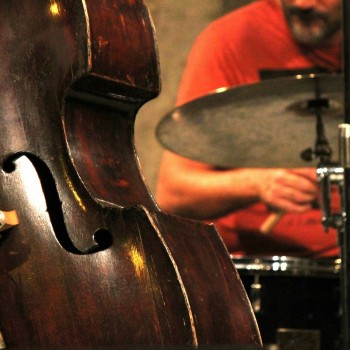
Red Sea Jazz Festival
Date: Last week of August
The Red Sea Jazz Festival is the most immeasurable Israel music festival. It is a three-day-long event featuring 9-10 concerts per evening, six workshops with guest artists, and nightly jam sessions.
The Red Sea Jazz Festival is held annually in the last week of August in Eilat, Israel. The festival offers a combination of performances by international jazz artists and local talent. All performances are held outdoors at the Eilat port.
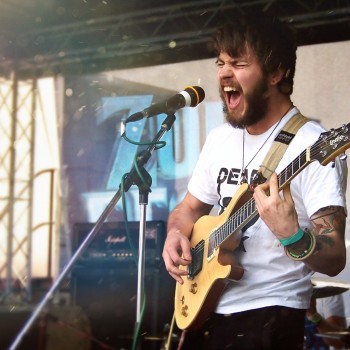
Jerusalem Beer Festival
Date: August
Jerusalem hosts beer brands and breweries from all over the world for the best beer fest annually. The Jerusalem Beer Festival is an internationally recognized celebration of good music, good food, and of course, exceptional beer. You can find over 100 brands here with either bottled beer or freshly brewed ones.
Held in the magical 3000-year-old city of Jerusalem, the festival boasts a unique atmosphere, ensuring an extraordinary experience.
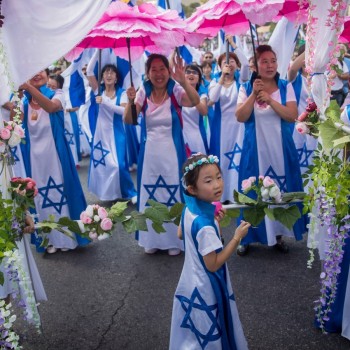
Sukkot
Date: September
Sukkot is a week-long Jewish festival that falls shortly after Yom Kippur. Sukkot in Israel is a time of holiday – the first and last days are national holidays when most businesses will be closed (similar to a regular Shabbat). In contrast, the intermediary days are typical business days, except that many Israelis take time off work.
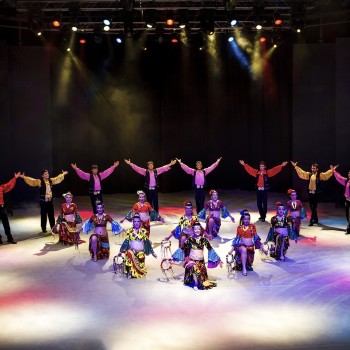
Karmiel Dance Festival
Date: Last week of July
The Dancing Festival of Karmiel is an annual Summer fiesta filled with ceaseless dancing over three days and nights. Five hundred dancers from all over the country and the world perform in dozens of shows in front of thousands of visitors.
The festival includes more than 80 shows in multiple venues and contains numerous dancing styles such as classical, modern, jazz, hip-hop, ethnic, and more. The festival starts with a colorful parade of 3,000 dancers accompanied by authentic orchestras.
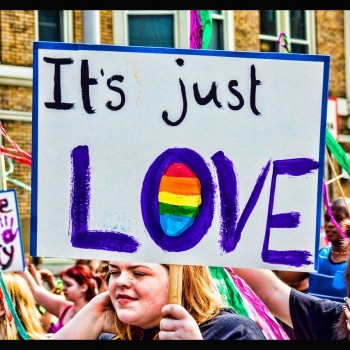
Tel Aviv Gay Pride
Date: June
Tel Aviv Gay Pride has become one of the enormous events of the year in Tel Aviv. Visitors from all over Israel and the world come out in full force to celebrate.
This lively town is full of captivating costumes, cool headgears, posters, catchy slogans, music, food, and fun during the event! The showstopper event is the Pride Week Parade which concludes the week-long festival.
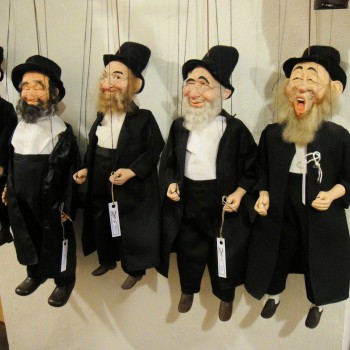
Hutzot Hayotzer Fair
Date: August
Hutzot Hayotzer Fair is a 12-day- annual International Arts and Crafts Fair or Festival held in The Sultan's Pool area, featuring the work of local and international artists. During the festival, the artist studios along the lane stay open late, and the artists offer public demonstrations of their work. There are also open-air concerts, workshops for children, and food booths. Many of Israel's leading pop and rock stars have performed at Hutzot Hayotzer.
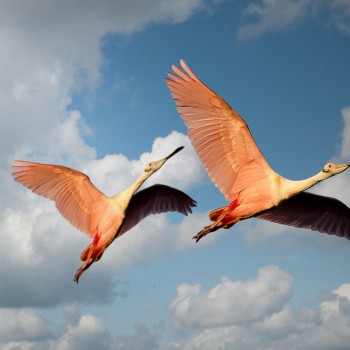
Eilat Birds Festival
Date: March 27th- April 3rd
The Eilat Birds Festival brings together birders from the world over for an unforgettable week of birds, migration, and nature during the peak of spring migration.
The experience of spotting over 250 different bird species is pretty enjoyable. The Eilat countryside is the perfect venue to view the migratory birds. People often stay overnight to have a wonderful experience and enjoy the sweet chirping sounds.
Attractions / Top Sights
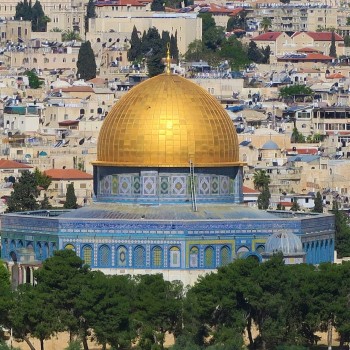
Jerusalem
When to visit: April to May and October to November
When to visit: https://www.britannica.com/place/Jerusalem
Jerusalem is a city situated in modern-day Israel and is recognized by many to be one of the holiest places in the world. Jerusalem is a site of major significance for the three largest monotheistic religions: Judaism, Islam, and Christianity, and both Israel and Palestine have claimed Jerusalem as a capital city.
In acknowledgment of its central place in the traditions and histories of numerous peoples, the Old City selected a UNESCO World Heritage site in 1981.
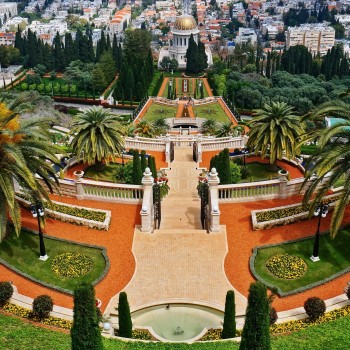
Haifa
When to visit: April to July or. September to November
When to visit: https://www.britannica.com/place/Haifa
Haifa is Israel’s third-largest city, Israel’s chief port, and home to 400,000. Draped around the slopes of biblical Mount Carmel, it is a 100-year-old city whose importance burgeoned in the 1920s and 1930s as Britain followed its League of Nations mandate over Palestine to create a Jewish homeland.
The bustling lower Carmel neighborhood is the port area where much of Haifa’s daily business is conducted. The slopes of central Carmel are mainly residential, and the mountaintop Upper Carmel is home to museums, many hotels, and shops.
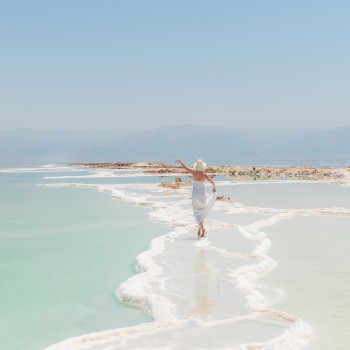
Dead Sea
When to visit: November 12th to April 8th
When to visit: https://www.britannica.com/place/Dead-Sea
The Dead Sea is one of the enthralling places on Earth because of its unique and natural resources. It’s almost ten times as salty as the ocean, making it a harsh environment for anything to grow in. And at 400 meters (1,400 feet) below sea level, it’s the lowest elevation on land.
Dead Sea water and mud have proven medically effective for severe skin diseases and joint problems into long-term remission. The salt and minerals from its water have been used in cosmetics for almost a thousand years.
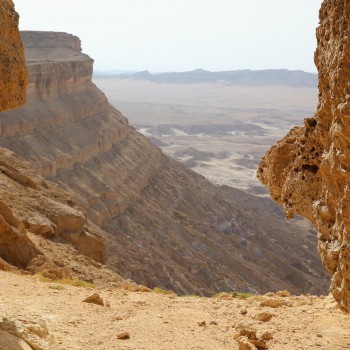
Masada
When to visit: March to June and September to November
When to visit: https://www.history.com/topics/ancient-middle-east/masada
Masada is one of the most visited sites in Israel as it holds great historical importance. Located on a high plateau in southern Israel overlooking the Dead Sea, Masada was the last Jewish holdout to fall to Rome at the end of the First Jewish–Roman War. The ancient fortress on top of a rocky plateau was the last stronghold during the First Roman-Jewish War.
Presently an Israeli national park and a UNESCO World Heritage Site, the 840-acre complex holds well-preserved ruins attesting to the history of the ancient kingdom of Israel and the courage of its people in the face of a Roman siege. The site is now a symbol of heroism and a favorite tourist attraction.
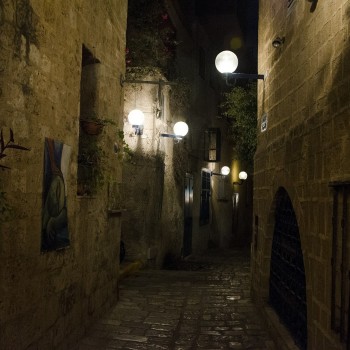
Jaffa
When to visit: September to October
When to visit: https://www.jewishvirtuallibrary.org/jaffa
Jaffa is the oldest port globally and was founded by Japheth, the son of biblical Noah. The ancient city was built on a hill jutting out slightly from the coastline on the west and overlooking the open sea.
A picturesque vision of honey-colored stone, built for aimless wandering and home to an excellent flea market, Jaffa presents an old-world-style respite from the modern thrum of Tel Aviv next door.
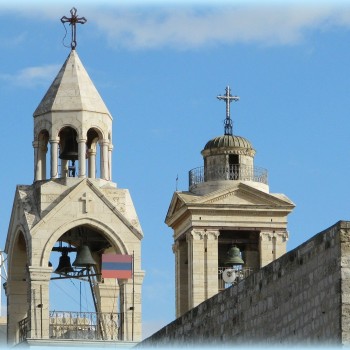
Bethlehem
When to visit: September to October
Bethlehem is an important historical city in the West Bank, about 10km (6.2 miles) south of Jerusalem. Bethlehem or beit lechem means "House of Bread" in Hebrew.
During the Christmas season, Christians worldwide make a pilgrimage to the Nativity Church to see the place where Jesus was born. Rachel's Tomb is at the northern entrance of Bethlehem and is an important Jewish holy site. More notably, the Old Testament classifies Bethlehem as the city where David was from and crowned the first king of Israel. Whether you're interested in the city's history, religion, or culture, it is an exciting place to visit.
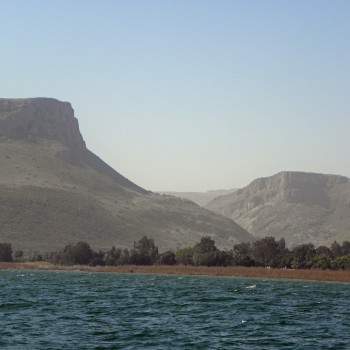
Sea of Galilee of Galilee
When to visit: April to July
When to visit: https://www.seetheholyland.net/sea-of-galilee-article-israeloutside-jerusalem/
The Sea of Galilee of Galilee is the lowest freshwater lake on earth and the second-lowest lake globally – the lowest being the saltwater Dead Sea. Jesus’ Sermon on the Mount was supposedly given on a hill overlooking the sea.
Among Holy Land sites, the Sea of Galilee has changed relatively little since Jesus walked on its shores and recruited four fishers as his first disciples.
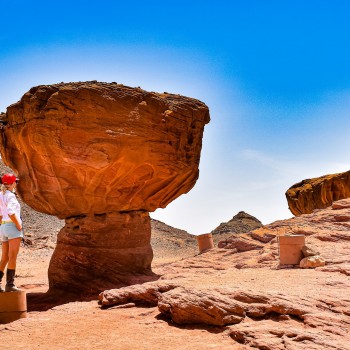
Timna Park
When to visit: November to April
Timna Park, near the Red Sea resort of Eilat, is one of the most beautiful corners of the Negev with unique rugged desert scenery. The landscapes have an instinctive quality, which captivates all who visit, with towering cliffs and surreally-shaped boulders set between vast tracts of multi-hued sand.
Timna's copper mining history (which stretches back to the ancient Egyptians) is worth exploring; the area is full of old mine shafts and rock inscriptions that desert adventurers can seek out. It also offers a historical and geological experience amid a primordial landscape—hiking, walking, and biking for all the family.
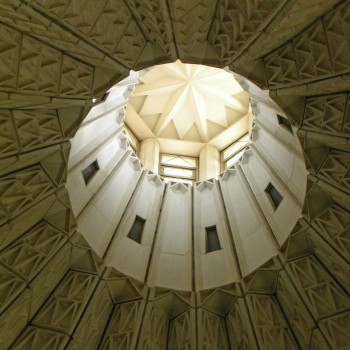
Nazareth
When to visit: March to Mach / September to November
Some describe Nazareth as ‘the Forgotten Son’ of Israeli tourism. Nazareth, located in Israel’s Galilee region, not only has over a dozen significant Christian sites but, as Israel’s biggest Arab city, has some interesting cultural sites and experiences to enjoy.
The holy places are some of the most important for those of the Christian faith. Nazareth is one of the main pilgrimage destinations in the country. It is where the Annunciation took place and where Jesus Christ was brought up, and the center of town is home to important churches that celebrate this history.
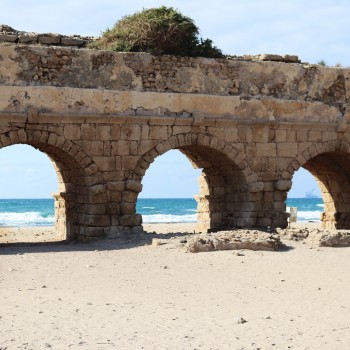
Caesarea
When to visit: February to May
Caesarea is both ancient and new. It was founded by Herod the Great in honor of Caesar Augustus, who gave him the city. In 1952, it became the only city in Israel to be governed by a private corporation. Antiquities park is where you’ll find ruins from Herod’s extensive building campaign.
Caesarea is a magnificent sight, a national park where incredible ancient harbor ruins, beautiful beaches, and impressive modern residences lie on either side—located on Israel’s Mediterranean coast about midway between Tel Aviv and Haifa.


